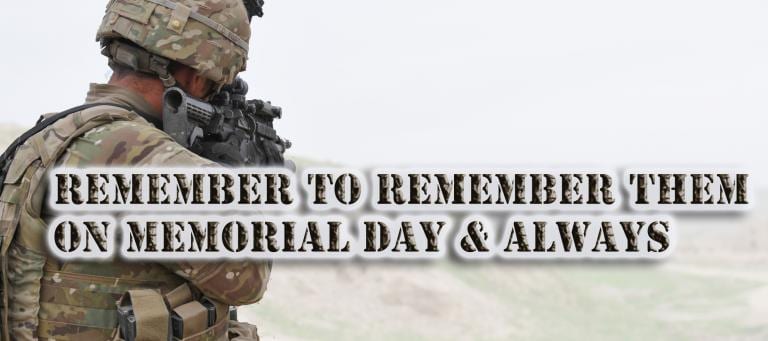Today is Memorial Day, when we remember those who have given their lives for our liberties. We are grateful for those who have, in effect, died for us. Their sacrifice, in turn, reminds us of someone else who died for us. He himself makes the connection: “Greater love has no one than this, that someone lay down his life for his friends” (John 15:13).
Some people observe Memorial Day by also remembering all of their loved ones who have died, visiting the cemetery to put flowers on their graves and bringing back memories of them.
Memory is one of the superpowers of the human mind. Our ability to conjure up in our minds people, events, and experiences from the past, thus bringing them back into our present, is a remarkable power.
Memory is part of our imagination, the faculty we have of forming mental images.
I wrote about this in the book I wrote with Matthew Ristuccia, Imagination Redeemed: Glorifying God with a Neglected Part of Your Mind.
Here are some reflections from that book:
Imagination is simply the power of the mind to form a mental image. That is, to think in pictures or other sensory representations. The imagination is at work when you use your memory. (What did you have for dinner yesterday? Remember what it looked like? How it tasted? You are using your imagination.) We use our imaginations when we plan to do something in the future. (What is on your to-do list for tomorrow? What are you going to have to take care of at work? Do you have errands to run? Notice the mental pictures that come to mind of you doing these things.) Imagination lets us relive the past and anticipate the future. And it takes up much of our present. We use our imaginations when we daydream and fantasize, to be sure, but also when we just think about things. Reading requires the imagination, and this is true whether you are reading a narrative (“It was a dark and stormy night”; “Abraham Lincoln was born in a log cabin in 1809”; “Two people were killed Saturday night when their car ran out of control and struck a tree”) or an exposition of ideas (“Examples of the economic factors would include the housing market, the automobile industry, and Wall Street”; “Plato explains his philosophy with the analogy of people chained up inside a cave”; “Christ died for sinners”). Notice how much you have been using your imagination just reading this paragraph.
According to ancient, medieval, and Renaissance psychology, memory is one of the three faculties of the mind, along with understanding and the will.
Developing the mind–that is to say, education–involves building up each of these abilities. Thus they correspond to the trivium of classical education: grammar (cultivating the memory), logic (cultivating the understanding), and rhetoric (cultivating the will).
St. Augustine saw these three distinct but interwoven mental faculties as reflecting the image of God in human beings and as being analogous to the Trinity:
The imagination of God is the source of the imagination of human beings. The connection between them was first explored by Augustine. The Trinity, he said, is reflected in human beings, who were created in His image. Augustine saw a trace of the Triune nature of God in the three faculties of the human mind, which he identified as the understanding, the will, and the memory. Memory, as he saw it, is a function of the imagination; it is the capacity to conjure up mental images of the lived past. Ancient and medieval thinkers considered memory to be the primary category in our ability to picture images in our minds, since we could never imagine a tree unless we remembered what a tree looks like, and we could never imagine events in the future unless we recalled knowledge and experiences from the past. In his treatise On the Trinity, Augustine explores the inter-relationships between memory, understanding, and the will, seeing them as analogous to the inter-relationships between the Persons of the Trinity. He concludes his discussion with the following summary:
We have reasoned also from the creature which God made, and, as far as we could, have warned those who demand a reason on such subjects to behold and understand His invisible things, so far as they could, by those things which are made and especially by the rational or intellectual creature which is made after the image of God; through which glass, so to say, they might discern as far as they could, if they could, the Trinity which is God, in our own memory, understanding, will. Which three things, if any one intelligently regards as by nature divinely appointed in his own mind, and remembers by memory, contemplates by understanding, embraces by love how great a thing that is in the mind, whereby even the eternal and unchangeable nature can be recollected, beheld, desired, doubtless that man finds an image of that highest Trinity. And he ought to refer the whole of his life to the remembering, seeing, loving that highest Trinity, in order that he may recollect, contemplate, be delighted by it.
St. Augustine, Of the Trinity, book XV, chapter 20, paragraph 39. [Augustine’s complete treatment of this subject is found in Book X.]
The memory/imagination is analogous to he Father, the Creator. The understanding/logic is analogous to The Son, the Logos. The will is analogous to the Holy Spirit, who converts our wills so that we love God and desire to do His will.
So on this Memorial Day, use your memory. Remember those who gave their lives; remember your loved ones; remember good things that happened to you in your own life; remember God. “Recollect [memory], contemplate [understanding], and be delighted [the will].”













